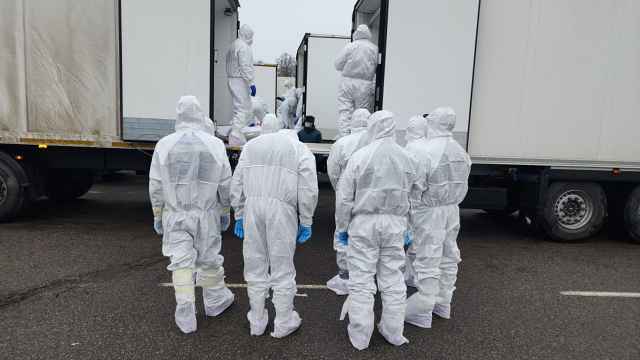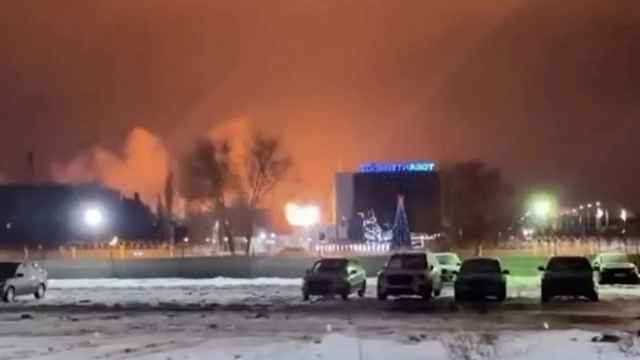
Alexey Borodak
Associate
Norton Rose (Central Europe) LLP
Only two months are left before the federal law on compulsory liability insurance for owners of hazardous facilities for harm caused by an accident at a hazardous facility ("the New Insurance Law") comes into effect.
From Jan. 1, 2012, the owners of all hazardous facilities in Russia will be required to insure against their civil liability for harm caused from an accident at such facilities.
Recent disasters in Russia, such as the explosions at the Raspadskaya coal mine and the accident at the Sayano-Shushenskaya hydroelectric power station, expose the vulnerability of hazardous facilities and, consequently, the risks to which an unlimited number of people are exposed.
Liability insurance mitigates the financial consequences of an accident for both the victims and the owner of a hazardous facility. Furthermore, such insurance constitutes a strong preventive measure by itself, as when assuming liability risks, an insurance company is able to assess a hazardous facility, its production processes and its integrity.
The duty of the operators of hazardous facilities to insure their liability was contemplated as far back as 1997 by the federal laws on industrial safety of hazardous facilities and on safety of hydraulic facilities. But it is only now due to the New Insurance Law that an attempt has been made to implement in Russia a real mechanism of compulsory civil liability insurance for owners of hazardous facilities.
Will the New Insurance Law plug the existing gaps? Our thoughts on this issue are briefly outlined below.
Under this law, the object of compulsory liability insurance is the property interest of the owner of a hazardous facility coupled with its liability to compensate victims.
The majority of experts share the opinion that the insured amounts under the New Insurance Law seem to be reasonably adequate.
But the question arises as to whether the foregoing is sufficient for an effective regulation in the sphere of compulsory liability insurance. Unfortunately, by the time the new law enters into effect, many issues will remain unresolved.
The first important point is that natural persons are excluded from compulsory insurance policy holders. For instance, on numerous occasions, the opinion has been expressed that it will not be possible to force the private owners of elevators to effect such compulsory liability insurance.
Another omission is the lack of a working legal liability mechanism in circumstances where compulsory liability insurance policy is unavailable. In fact, it means that when the owner of a hazardous facility fails to meet the compulsory insurance requirements, no legal sanction can be imposed upon it. The only circumstance in which it will actually work is the compulsory liability insurance in respect to newly developed hazardous facilities, as the law directly stipulates that commissioning of a hazardous facility cannot happen until the owner of such facility holds a compulsory liability insurance policy.
Furthermore, there is currently no clear scheme for determining the amount of the insurance premium. Nevertheless, insurers proclaim that the market has a potential volume of up to 30 billion rubles during the first year of the operation of the New Insurance Law.
But the main concern is the impossibility of realization of the rights and duties by the compulsory liability insurance parties. Article 9 of the New Insurance Law states that the order of realization of the rights and duties by the parties under the contract of compulsory liability insurance is to be established by the government of the Russian Federation in special compulsory insurance rules.
Until now, no such compulsory liability insurance rules have been ratified by the government. So the terms of the insurance contract, the terms of payment, the lists of documents and the information to be supplied in order to conclude a contract of compulsory liability insurance have not yet been identified.
Apart from this, more than 20 various standards and professional work rules, including a variety of regulatory legal acts, are to be developed and confirmed by Jan. 1, 2012.
But for insurance companies in Russia, many problems remain unresolved. For instance, there is no settled concept regarding new types of insurance licensing or new policy forms, the development of uniform approaches to settlement of insured events or definitions of the amount of insurance compensation.
With such a short period before the commencement of the new law, it is hard to imagine how implementation of the New Insurance Law from Jan. 1, 2012, will be anything but "hazardous."
A Message from The Moscow Times:
Dear readers,
We are facing unprecedented challenges. Russia's Prosecutor General's Office has designated The Moscow Times as an "undesirable" organization, criminalizing our work and putting our staff at risk of prosecution. This follows our earlier unjust labeling as a "foreign agent."
These actions are direct attempts to silence independent journalism in Russia. The authorities claim our work "discredits the decisions of the Russian leadership." We see things differently: we strive to provide accurate, unbiased reporting on Russia.
We, the journalists of The Moscow Times, refuse to be silenced. But to continue our work, we need your help.
Your support, no matter how small, makes a world of difference. If you can, please support us monthly starting from just $2. It's quick to set up, and every contribution makes a significant impact.
By supporting The Moscow Times, you're defending open, independent journalism in the face of repression. Thank you for standing with us.
Remind me later.





